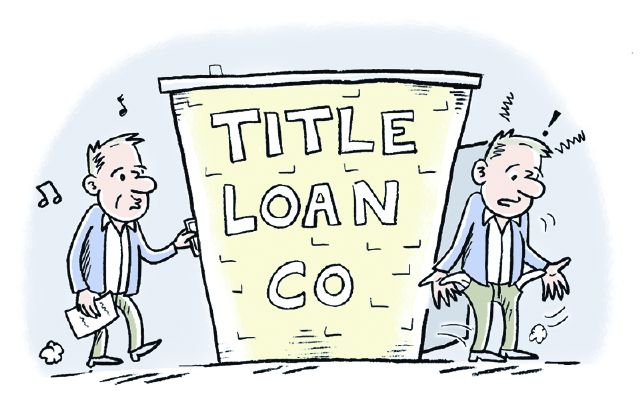Overdue bills. Car maintenance. Speeding tickets. Emergency medical services. A quick vacation. Unexpected needs arise and, sometimes, ends don’t meet paycheck to paycheck. For some New Mexicans, living with little to no savings can make keeping up-to-date with expected expenses hard enough, without surprise monetary demands. A payday come early sounds like a financial savior—but could be a one-way ticket to the downward spiral of debt hell.They seem to be everywhere. Signs declaring quick cash, payday today, no credit check, everyone’s approved. The number of payday loan offices around the nation has increased from 300 in 1992 to almost 22,000 in 2003, according to a report by the Congressional Research Service. If you’re strapped for cash, these payday loan companies offer short-term loans or cash advances as long as you have a checking account, a form of identification and a pay stub. The concept is as simple as the transaction: You pay a $15 to $30 fee for every $100 you receive, write a check for the full amount and they hold it until your next payday. But problems arise when payments can’t be met, the checks can’t be cashed or the loan is renewed, sometimes causing borrowers to pay upwards of 300 percent of what they received.The high cost and high risk of these payday loans has raised much national concern as well as the attention of Gov. Bill Richardson and Attorney General Patricia Madrid. This last legislative session, the governor backed legislation, HB 409, that would have imposed regulations on the payday lending industry, but it was killed in the Senate. Without the legislation, New Mexico remains one of the few states in the country without specific payday loan regulations.Yet the failing of HB 409 this last session prompted the governor to take another approach to solving the payday loan problem. The Financial Institutions Division and the governor’s task force on payday lending, with the help of Madrid, have published regulations to help protect New Mexico consumers.“It was abundantly clear that we could not wait another year without any sort of regulation of payday lenders,” says Edward J. Lopez, Jr., superintendent of Regulation and Licensing. The regulations, as proposed, would cap fees to $15.50 per $100, and would specify that loans could only be renewed twice, that a maximum of 25 percent of the borrower’s monthly income could be loaned and that consumers would not be required to repay loans made by anyone without a state license.“The primary purpose is to end the cycle of debt for consumers of payday loans,” Lopez says. “We’re not trying to put payday lenders out of business, we just want people to view the product for what it is: a short-term, two-week to one-month loan. That’s it.”The regulations have been published with the New Mexico Registrar and are available for public review online at www.nmcpr.state.nm.us/nmregister. The Financial Institutions Division is also taking public comment on the regulations. After reviewing public comments, a final draft will be issued and published before it’s enacted into law.Jean Ann Fox, director of consumer protection for the Consumer Federation of America, plans to comment on the regulations. “New Mexico does not limit what licensed lenders can charge, currently,” she says. “They don’t have much limitation at all.”“Based on what they proposed, New Mexico would still allow small loans to be made to cash-strapped families that cost over 400 percent annual interest. And they would still permit loans based on asking people to write checks [when] they don’t have money in the bank to cover them,” Fox says.Craig Parr has been in the finance industry for 15 years and is the regional director of Cash, Co., a company that operates payday loan offices in New Mexico. “Regulation does need to be in place. They need to do it sometime. What they are trying to put in now is on the extreme side of it … but we can live with it,” he says.Parr says his stores are already below or very near the limits the regulations would dictate so they wouldn’t affect his stores much. “A lot of the [payday loan offices] out there are trying to get more then 25 percent of their income for loan sizes and that’s where the problems are,” he says.As far as the regulations go, the only provisions he doesn’t agree with are the consumer’s ability to choose whether or not to renew a loan, even if unpaid, and the option of the 130-day payback period. “You’ve got major corporations that are involved in it and they are after that almighty dollar, however they can get it,” he says.Parr says he won’t comment on the regulation, but hopes to see state officials change the payday loan market in New Mexico. “There are bad [payday lenders] out there. There are really bad [payday lenders] out there. There’s just too much nonregulation; too much garbage. … It’s a needed business, within reason.”
Speak Up!
The Financial Institutions Division is taking public comment on the new payday lending regulations (www.nmcpr.state.nm.us/nmregister). To submit a comment, e-mail pdr.rld@state.nm.us or mail your comment to attn. Mr. Bill Verant, 2550 Cerrillos Road, Santa Fe, N.M. 87504. Deadline for comments is 5 p.m. on Friday, June 30.
Call 346-0660 ext. 247 or e-mail christie@alibi.com with news tips. E-mail your guest editorial or letter to letters@alibi.com. To contact the author, e-mail amy@alibi.com.


